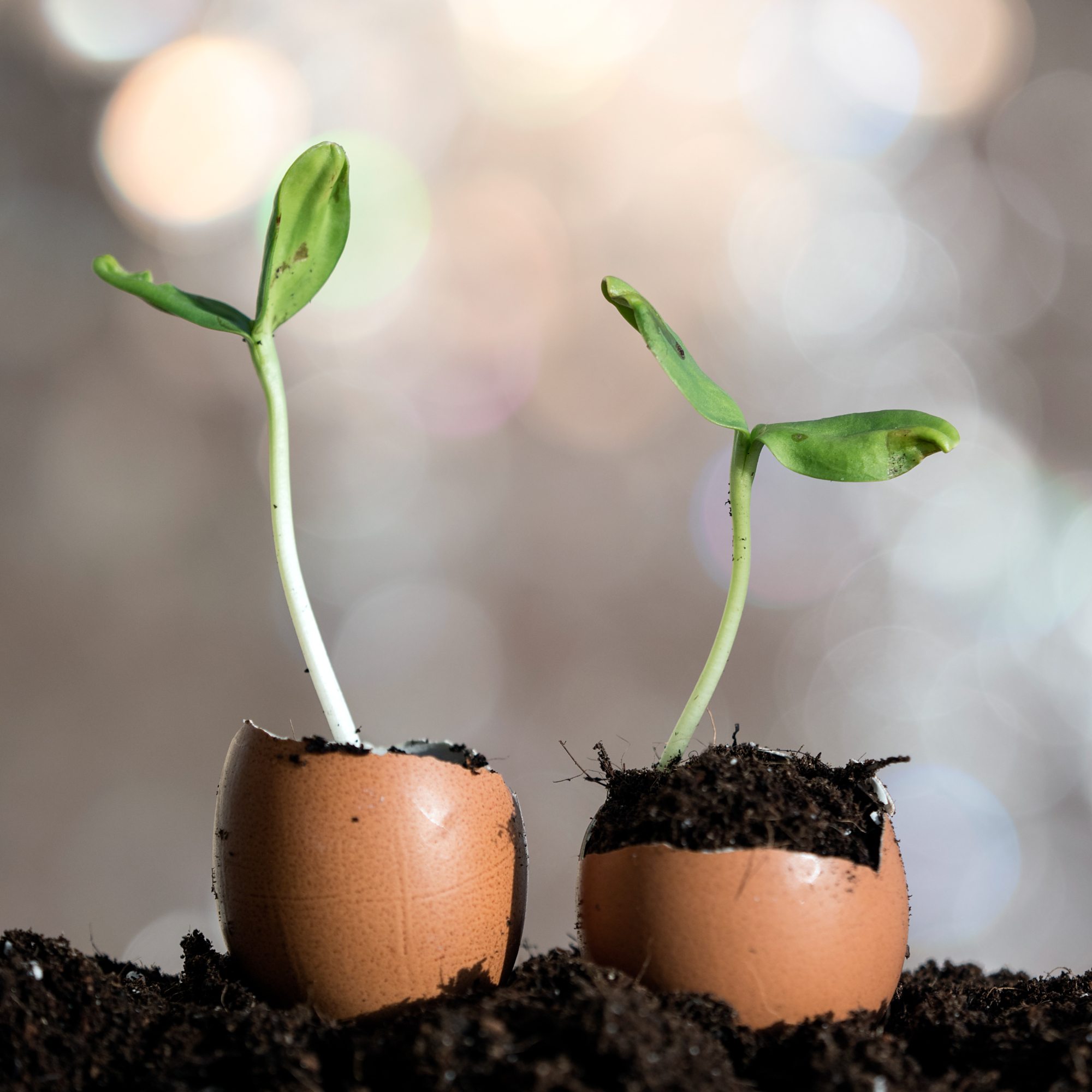
Although tossing your eggshells in the bin straightaway is pretty much the norm, did you know that there actually a handful of ways you can use eggshells in the garden to nourish your plants?
That's right. Instead of letting your eggshells simply go to waste after you make your morning omelette, consider getting some extra use out of them as a clever way to improve your garden for free – something we're sure many of us are partial towards.
With spring on the horizon, many of us are likely looking at ways to restore a garden after winter. So, before resorting to buying new, don't underestimate the power of using what you've already got in your kitchen cabinets. Little do you know, knowing how to use eggshells in the garden might just be one of the better pieces of advice you've been given to make for a flourishing garden idea.

How to use eggshells in the garden
Similarly to using coffee grounds in the garden, you can repurpose and use your eggshells in the garden in a myriad of ways. For example, as a natural plant fertiliser or even for deterring unwanted garden pests like slugs and snails.
'Eggshells are not waste. They are invaluable resources for creating a thriving garden without spending an extra penny,' begins Millie Durbak at Prestige Flowers. 'Eggshells are among the kitchen scraps that can help boost daffodils and tulips for a vibrant spring garden, for example.'
So, here are 5 ways you can use eggshells in the garden to know before you discard your eggshells without a second thought.
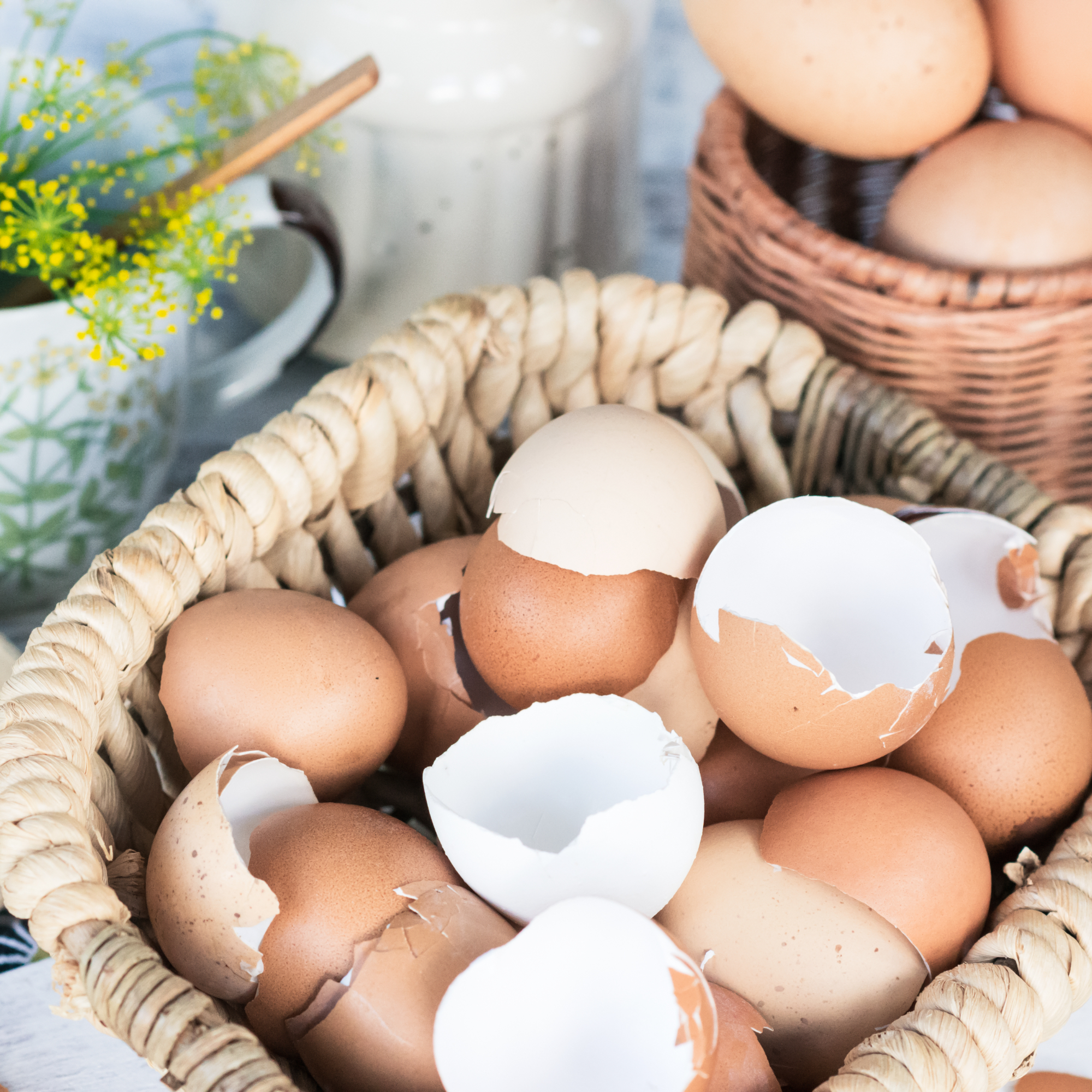
1. Seed starting pots
'Perhaps surprisingly to most people, eggshells make excellent, biodegradable seed starters,' reveals Josh Novell, director of Polhill Garden Centre. Instead of repeatedly buying small plastic tubs, make use of your eggshells.
'Gently wash and dry the shells, then carefully poke a drainage hole in the bottom before filling them with a seed starting mix and planting your seeds as usual,' adds Josh.
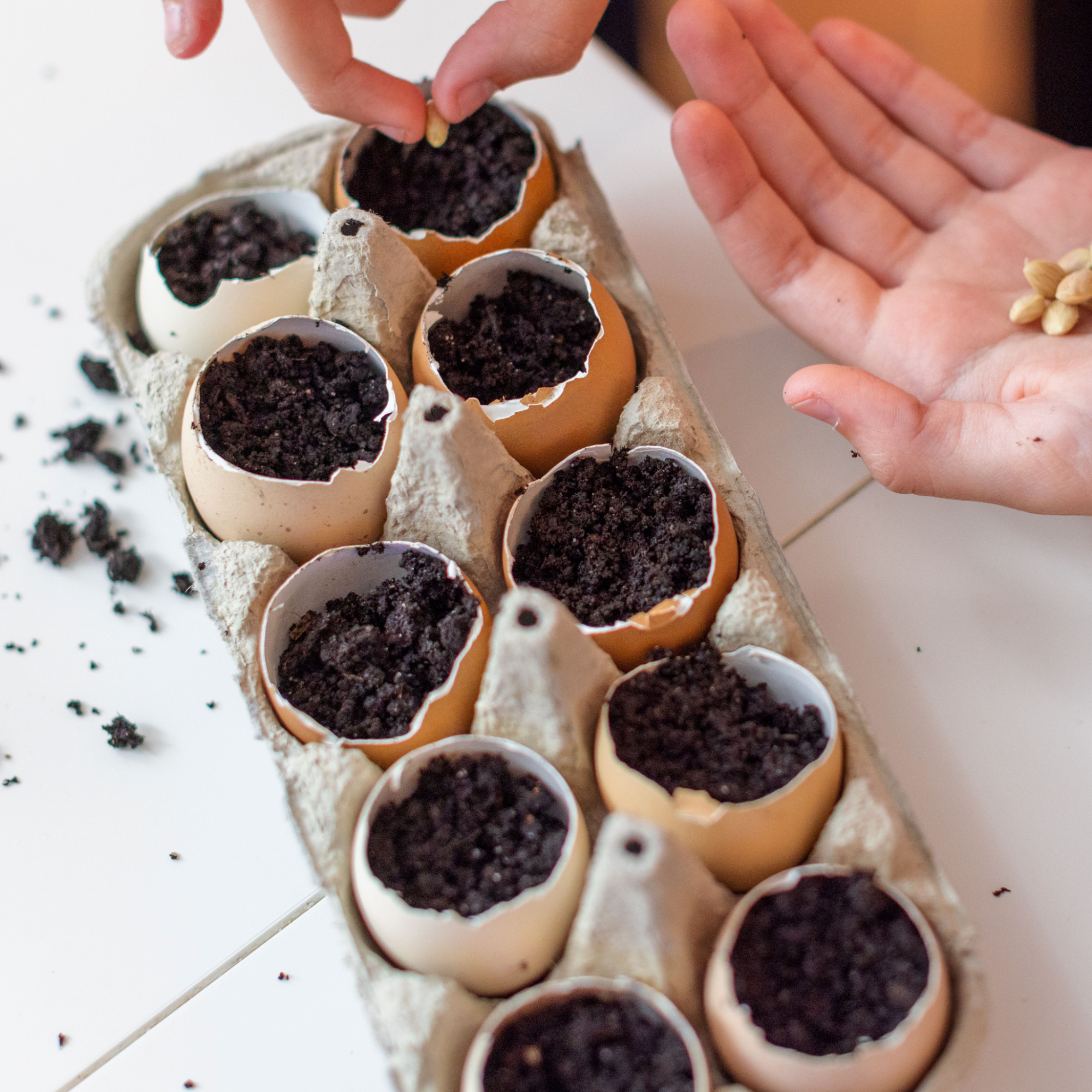
The beauty of using eggshells as seed starting pots is the fact that when the time comes to transport your seedlings into your garden, you can simply plant the entire eggshell directly into the ground, unlike plastic tubs. Plus, they provide an extra dose of calcium to the seedling.
Craig Morley, gardening expert at Budget Seeds only advises that you 'gently crack the shells before planting' to ensure they successfully biodegrade.
2. Organic fertiliser
As we mentioned earlier, eggshells are a great natural fertiliser. Josh explains, 'Eggshells are a natural source of calcium, crucial for strong cell walls, improved root development, and overall plant health.'
Millie warns that calcium deficiency can lead to weak stems and poor flower development. So, to create a nutrient-rich fertiliser out of eggshells, simply crush the shells and incorporate them into the soil around the base of the plant to give them a calcium boost.
When doing this, Craig urges the importance of ensuring your eggshells are crushed or ground quite finely, so the plants can access the calcium much easier.
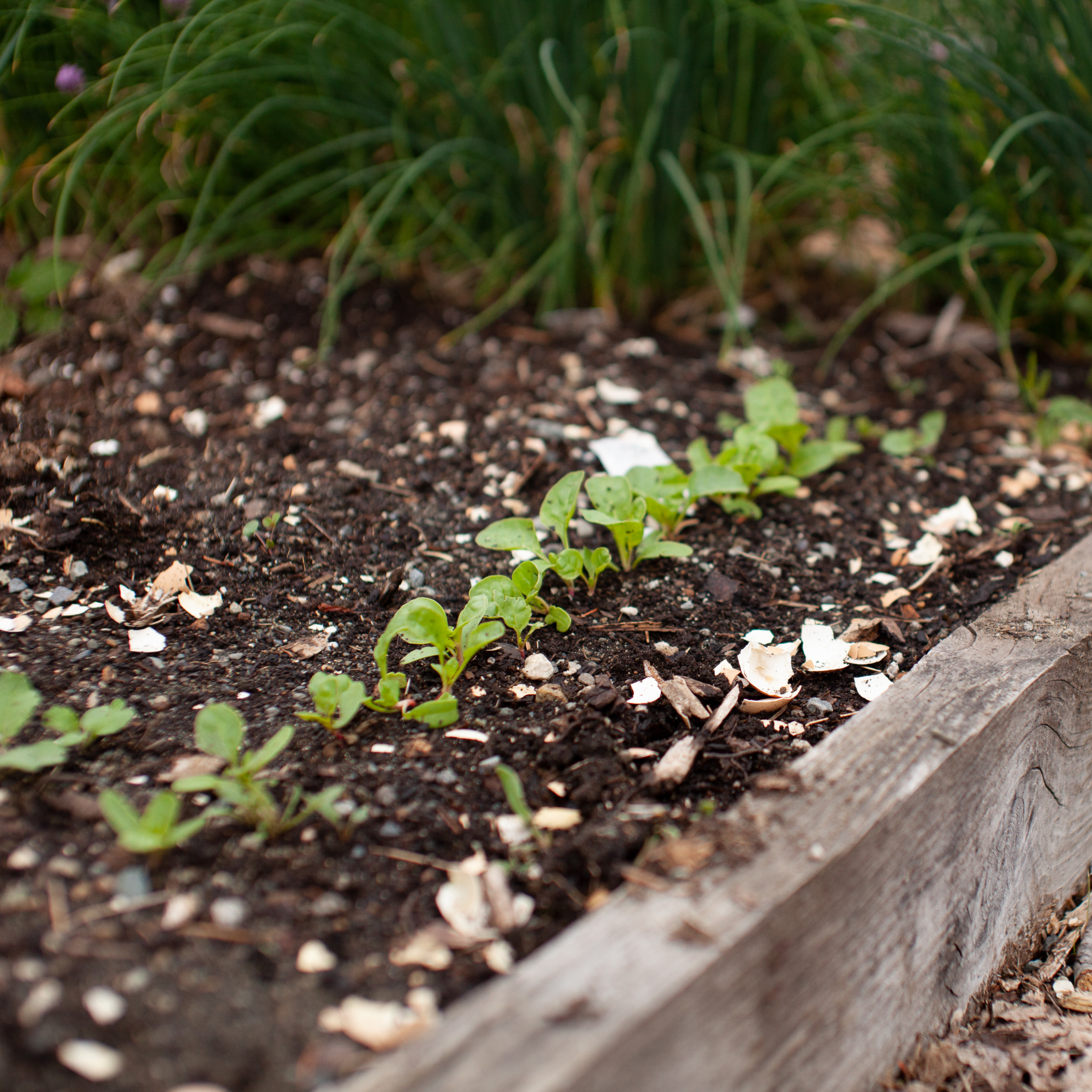
3. Deter pests
While eggshells are not a threat to humans, Josh assures that 'the relatively sharp, jagged edges of crushed eggshells can act as a natural deterrent against soft-bodied pests like snugs and snails'. That's right, your kitchen waste may just be the solution to getting rid of slugs in the garden once and for all.
'Simply sprinkle crushed eggshells around the perimeter of your garden beds or around individual plants to create a barrier that these unwelcome visitors will find unappealing to cross,' explains Josh.
4. Boost acidity levels
Although many plants thrive in neutral to slightly acidic soil, a handful of plants prefer more acidic conditions. So if you're looking to, for example, grow blueberries, azaleas or hydrangeas in pots, eggshells may just be your best friend in these gardening endeavours.
'These plants prefer more acidic conditions and eggshells can help lower the pH level of your soil slightly,' explains Josh. 'Crush and sprinkle eggshells around acid-loving plants, or add them to your compost pile to create a slightly more acidic environment.'
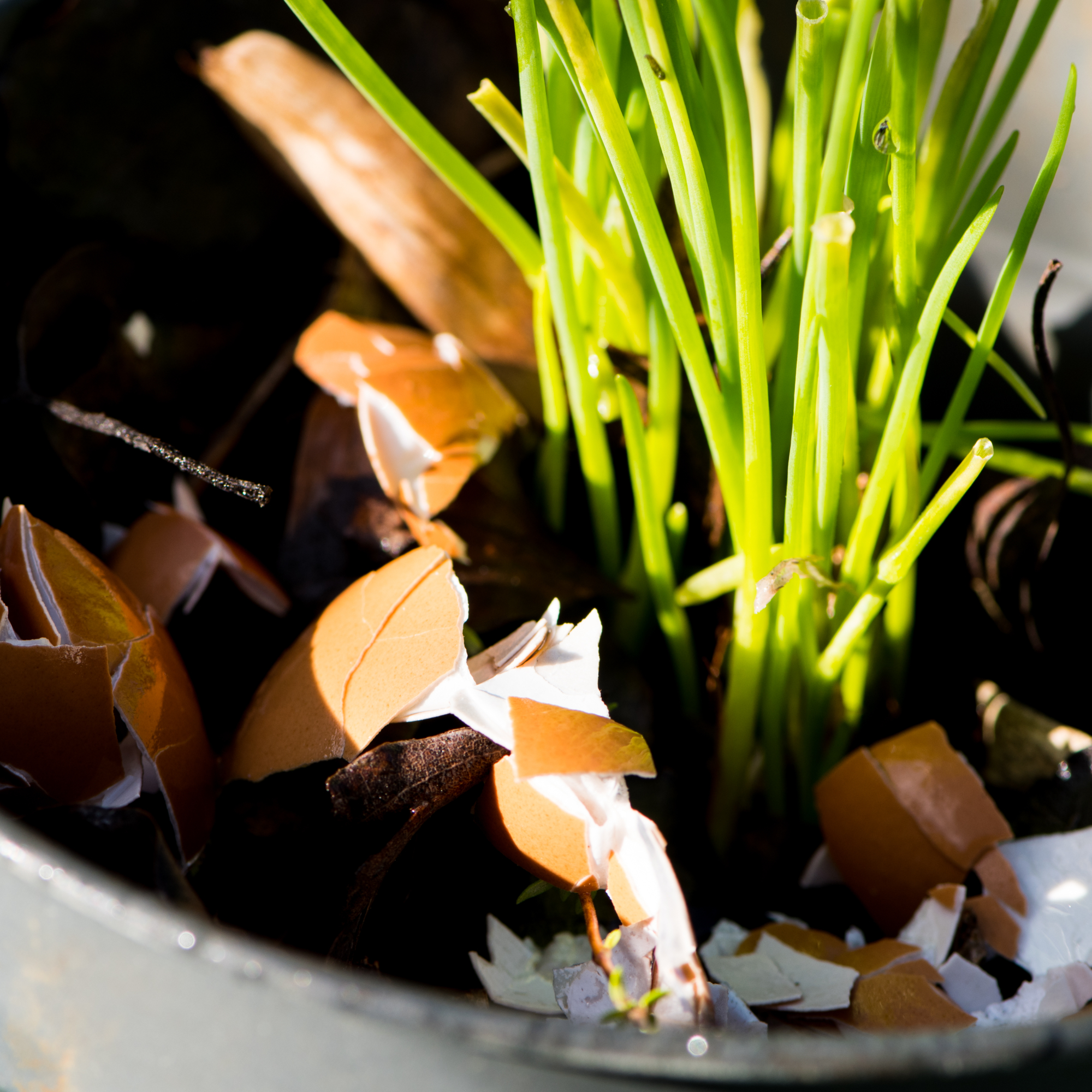
5. Composting
Similarly to acting as a great organic fertiliser, eggshells can also be used for composting.
'Eggshells will add calcium and various other micro-nutrients to your compost to ensure it has a good nutrient profile,' says Craig. 'Eggshells may also be beneficial for worms as they need grit to digest their food.'
But again, it's best to use crushed or ground-up eggshells in your compost heap to help it break down quicker.
FAQs
What are the benefits of using eggshells in the garden?
There a number of benefits for using eggshells in the garden. These include acting as an organic fertiliser alternative, being a calcium supplement for plants, and deterring unwanted garden pests like snails and slugs.
What plants like eggshells in the garden?
Some plants such as blueberries, azaleas, and hydrangeas prefer more acidic conditions. Therefore, sprinkling crushed eggshells around the base of these plants can help lower the pH level of the soil and achieve these ideal conditions.
Eggshells can also be used to ward off blossom end rot in tomato plants, which is caused by calcium deficiency. 'To prevent this, add a handful of crushed eggshells around the base of each tomato plant when planting and repeat every few weeks throughout the growing season,' advises Josh Novell at Polhill. 'The extra calcium will help prevent blossom end rot and encourage healthy fruit development.'
Now, instead of tossing your eggshells in the bin straight away, consider all the different ways you can use eggshells in the garden to your advantage. Your plants will surely thank you for it.







